The storage tank systems. Ideal for commercial use.
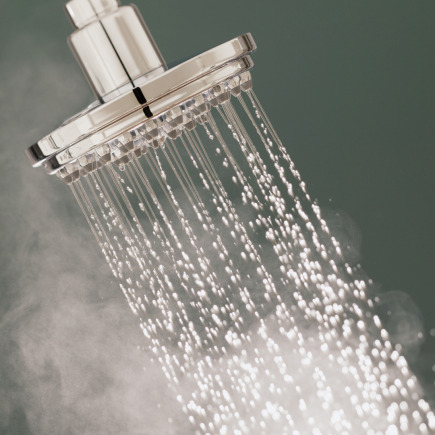
Water is hugely versatile. It provides a whole host of options for everyday use – whether as an essential, valuable resource in kitchens or in daily use in sanitary rooms and building technology due to its ability to be stored and transferred.
In all applications in which water comes into direct contact with the body, it must be supplied in the optimum quality and in sufficient quantities in line with stringent hygiene standards. These domestic hot water systems are subject to strict standards regarding planning, design and operation so as to ensure the reliable and hygienic supply of domestic water at the right temperature. However, if the water is to be used as a storage medium to retain energy obtained from valuable resources or to hold surplus energy, this is where system requirements come to the fore. The buffer storage tanks required decouple energy generation and energy consumption in the heating system to achieve the greatest possible system efficiency. With this technical trick, it is possible to make use of the sun’s energy even during the night, for example.

Hygienic
When it comes to domestic hot water, hygiene is the top priority. Given the value of water in sustaining life, Hoval domestic water systems must meet strict hygiene requirements.

Complete
With its comprehensive range of products for heating water and storing energy, Hoval offers suitable solutions for buildings ranging from blocks of flats and hotels right the way up to industrial plants.

Economical
The use of high-quality materials and an optimal component configuration ensure that the system operates in a particularly energy-saving manner and increases its overall service life.
Hygienic water heating

Hygiene plays a central role for the operators of domestic hot water stations.
Which system is the best for heating water?
These days, domestic hot water systems are part of the central heating system in which the heated water transfers the heat to the domestic water. There are various ways of doing this, depending on the heating system.
Selecting and planning the right hot water system depends on multiple factors, such as domestic hot water demand, the available space, the level of convenience required, environmental protection standards, hygiene requirements, legal requirements and financial resources.
Your Hoval partner will be at your side to identify your needs and the amount of domestic hot water required and find the right domestic water heating solution.

Choosing the right storage system depends on various factors and is therefore highly individual.
How does water hardness affect my domestic hot water system?
Limescale and other deposits are not just an important issue for household appliances – they can be relevant to the domestic water system, too. Water hardness is determined by the proportion of calcium and magnesium compounds dissolved in the water: the higher this proportion is, the harder the water is. If water that is too hard is used without a suitable treatment, this can lead to corrosion which shortens the service life of the water heater and affects hygiene, as deposits such as limescale can promote the proliferation of germs.
Hoval provides various options for protecting the domestic water system, such as the use of magnesium anodes or maintenance-free impressed current anodes. Irrespective of the water hardness, Hoval will find a suitable solution to ensure the system operates perfectly.
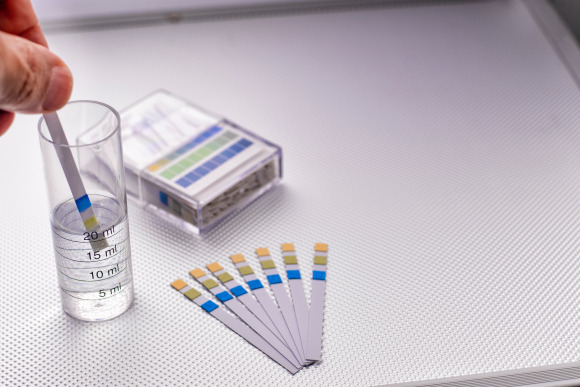
To ensure that your system runs smoothly, it is important that you know the water hardness.
The function of a buffer storage tank
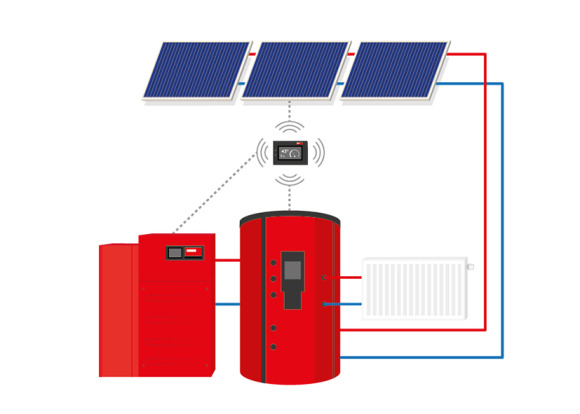
The purpose of the buffer storage tank is to store surplus energy or domestic hot water temporarily.
Water heating – what are the options?
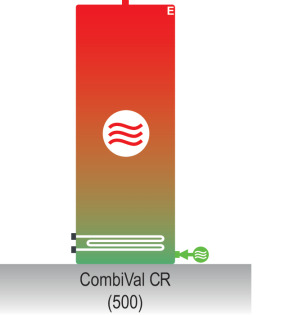
The domestic water storage system
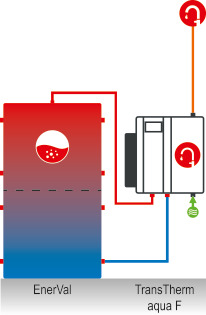
Continuous flow system
A brief explanation of the continuous flow principle: the essential element of this principle is the heat exchanger, which has two completely separate circuits. When the tap is opened, the process of heating the water starts and both circuits come into play. The cold water flows through the heat exchanger in the separate cold water circuit and absorbs the heat from the hot circuit, which flows through the heat exchanger starting from the heating system.
Peak demands for domestic hot water are increasingly common in commercial applications in particular. In order to ensure that these demands can be met at all times, the buffer storage tank needs to be the right size to supply the heat required quickly.
Storage systems for domestic hot water: CombiVal and MultiVal
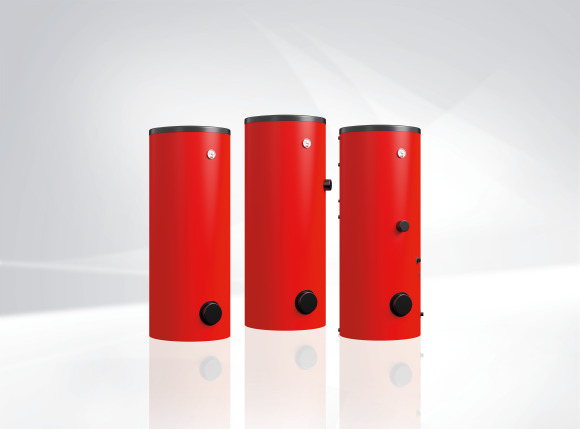
Domestic hot water continuous flow systems: TransTherm aqua F / L
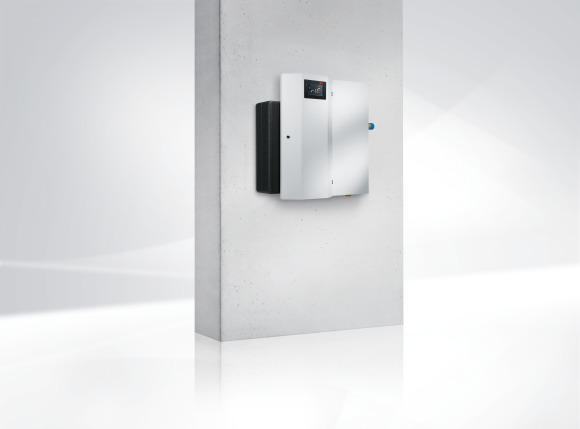
The EnerVal heat and cold buffer storage tank
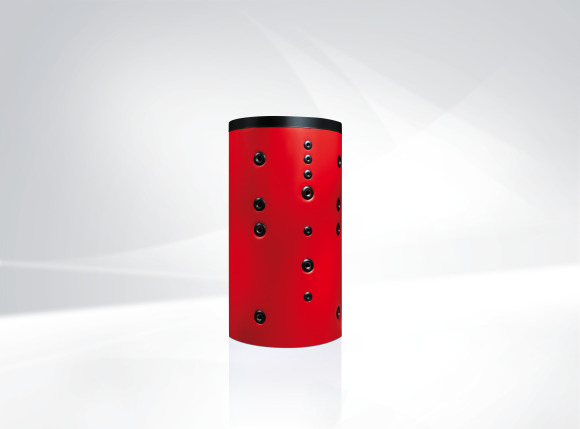
The buffer storage tank offers numerous benefits, such as the fact that the heating does not need to react to every small demand, and the heat from cost-effective, renewable sources can be used more effectively. The EnerVal programme from Hoval comprises a wide variety of models in different sizes, allowing various technical requirements to be met. That means the right EnerVal buffer storage tank with the right volume can be found for virtually any heating system.